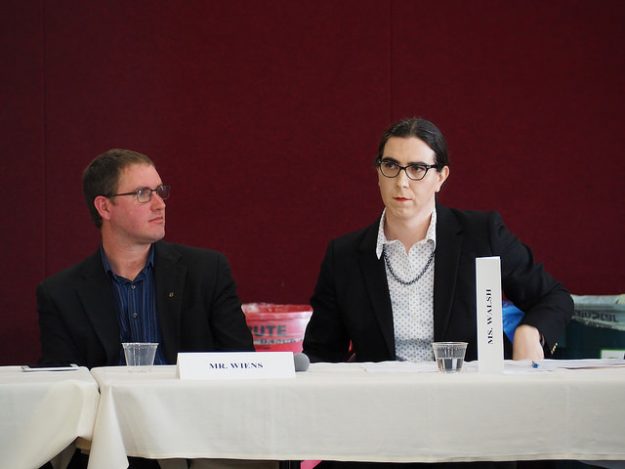The Electronic Frontiers Foundation is attempting to have some DMCA provisions declared unconstitutional by the courts on First Amendment grounds.

The Electronic Frontier Foundation is taking the Digital Millennium Copyright Act to court. This is nothing new. EFF has been fighting selected aspects of the DMCA since before the act was passed in 1998.
In this case, EFF is taking aim at provisions of the law that have in recent years become specifically problematic for the right-to-repair movement. These revolve around the DMCA’s Section 1201, which makes it illegal for users to find ways to bypass Digital Rights Management software to access copyrighted material, even when they legally own it.
On January 12, EFF and co-counsel Wilson Sonsini Goodrich & Rosati asked the U.S. Court of Appeals for the District of Columbia to reverse a district court decision in Green versus DOJ, which was a suit filed in 2016 by EFF challenging the anti-circumvention and anti-trafficking provisions of the DMCA on behalf of security researcher Matt Green and technologist Andrew “bunnie” Huang.
According to EFF, both are pursuing projects that are not only beneficial to the public, but would be completely lawful if not for the DMCA’s anti-speech provisions, which EFF says violate the First Amendment.
Green, a computer security researcher at Johns Hopkins University, works to make Apple messaging and financial transactions systems more secure by uncovering software vulnerabilities, which requires finding and exploiting weaknesses in code. He wants to publish a book about his work but fears that could lead to criminal charges under Section 1201.
Huang, a computer scientist and inventor, and his company Alphamax, are developing devices for editing digital video streams but fear that offering, or even using, their technology could also put them in a Section 1201 legal quagmire.
The appeal EFF has filed revolves around a ruling on a motion to dismiss from the Department of Justice, in which a federal judge said Green and Huang could proceed with claims that 1201 violated their First Amendment rights to pursue their projects, but dismissed the claim that the section was itself unconstitutional. The court also refused to issue an injunction preventing the government from enforcing Section 1201.
EFF thinks that this case also speaks to the heart of the right to repair movement.
Section 1201 was originally intended to protect artistic content, such as recorded music and movies, and was mainly seen as a way of limiting the ways people could use music and video files they’d legally purchased. These days its scope has broadened.
The rise of connected devices, which includes everything from light bulbs to automobiles, means that many of the devices people own are controlled by internal computers running proprietary software that owners can’t access due to the presence of DRM software. This often means that if the device breaks down due to a software problem, you can’t fix it yourself, or even take it to an aftermarket repair service, but must return it to a licensed repair facility, usually the dealer.
In some cases, even telling someone how to fix a problem is a criminal act, according to EFF.
“Section 1201 makes it a federal crime for our clients, and others like them, to exercise their right to free expression by engaging in research, creating software, and publish their work,” EFF senior staff attorney Kit Walsh said in a statement. “This creates a censorship regime under the guise of copyright law that cannot be squared with the First Amendment.”
Christine Hall has been a journalist since 1971. In 2001, she began writing a weekly consumer computer column and started covering Linux and FOSS in 2002 after making the switch to GNU/Linux. Follow her on Twitter: @BrideOfLinux





